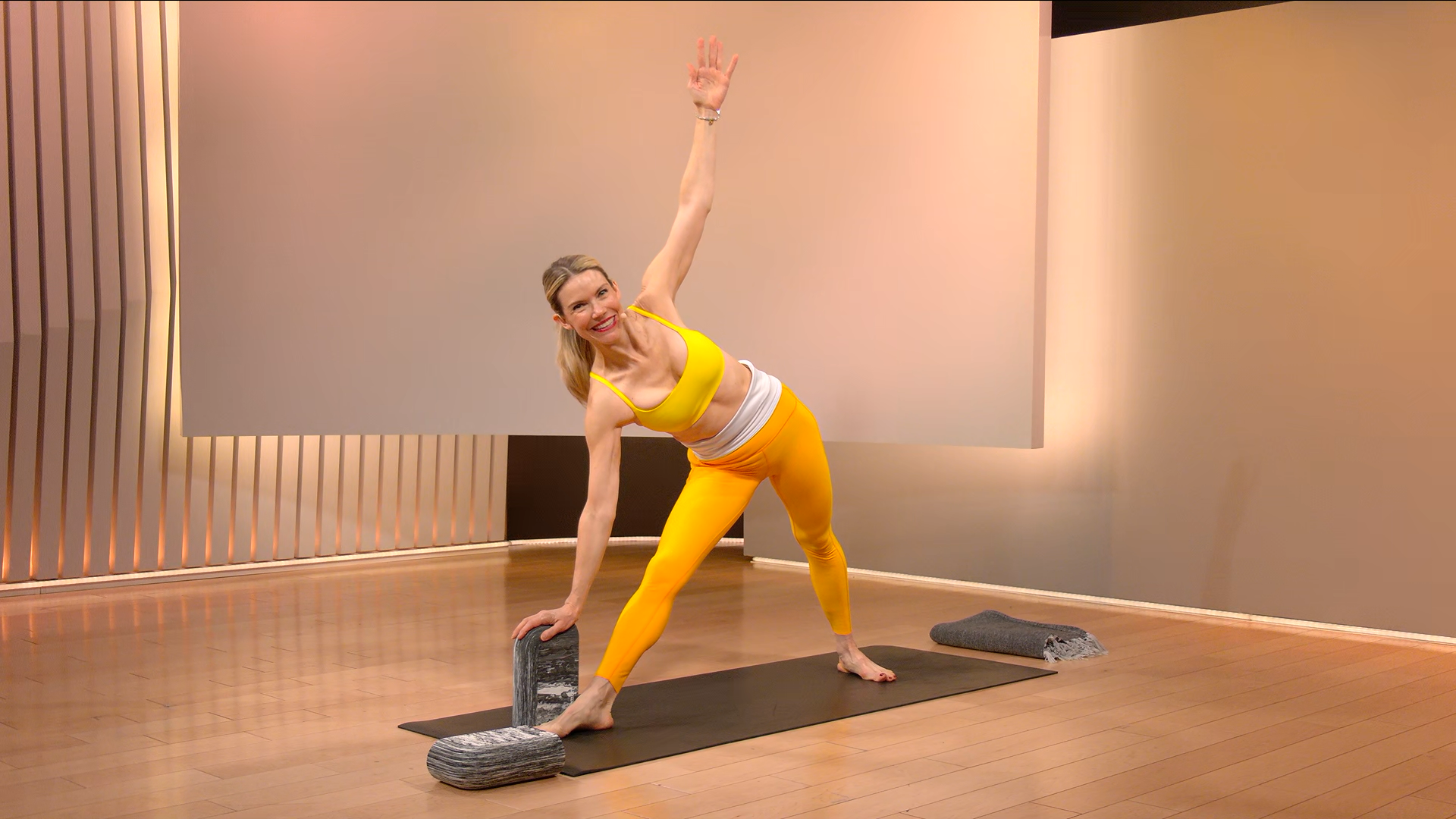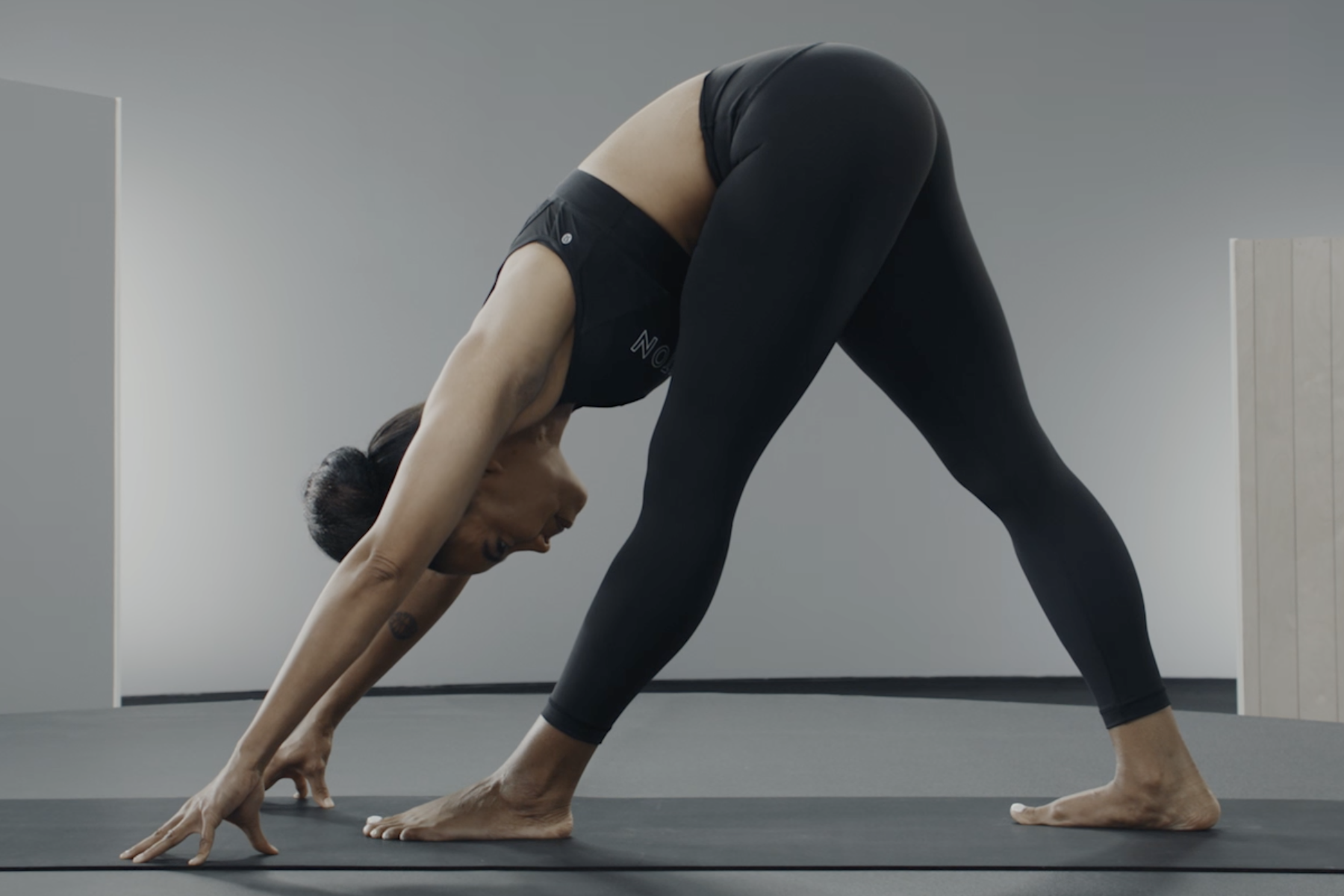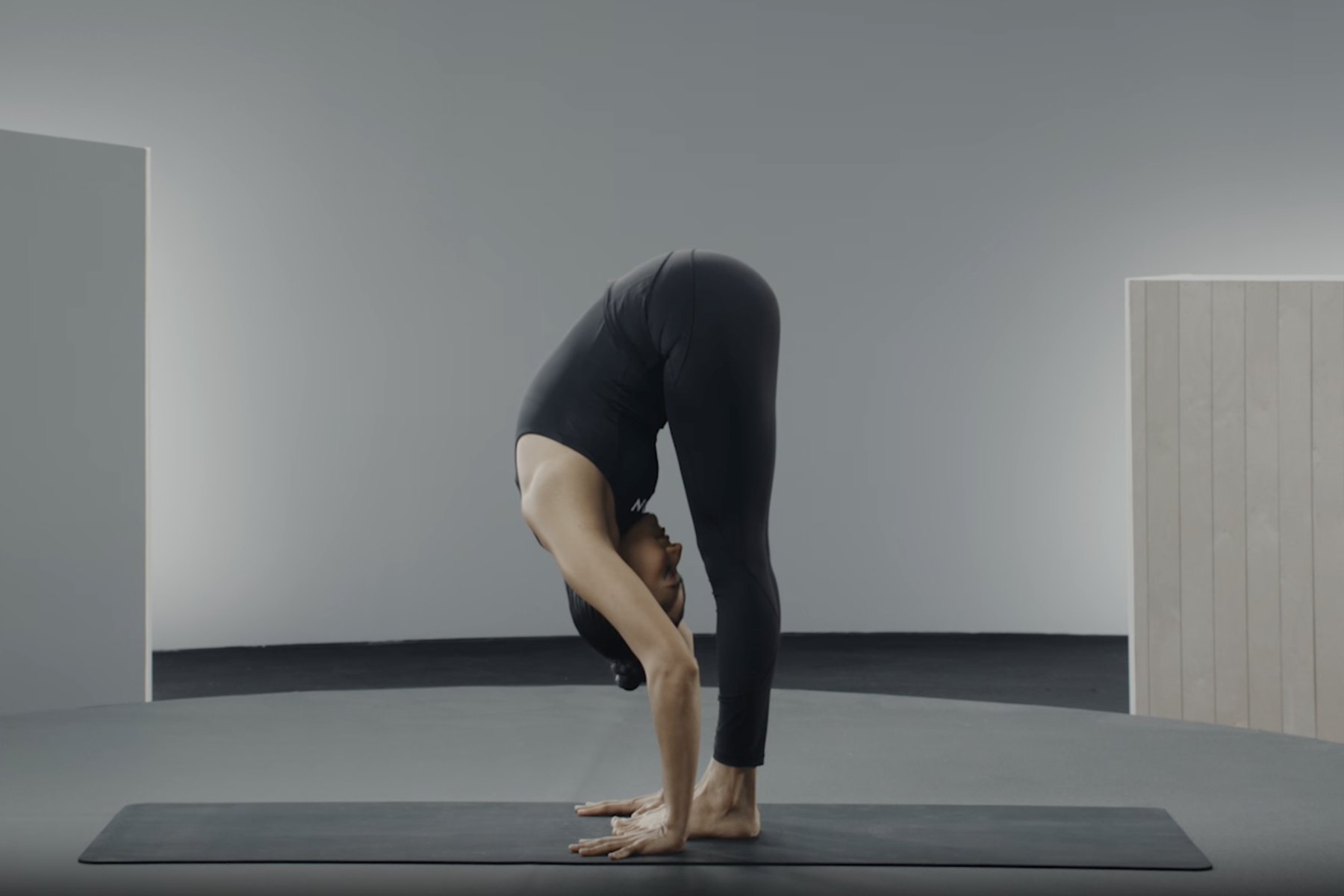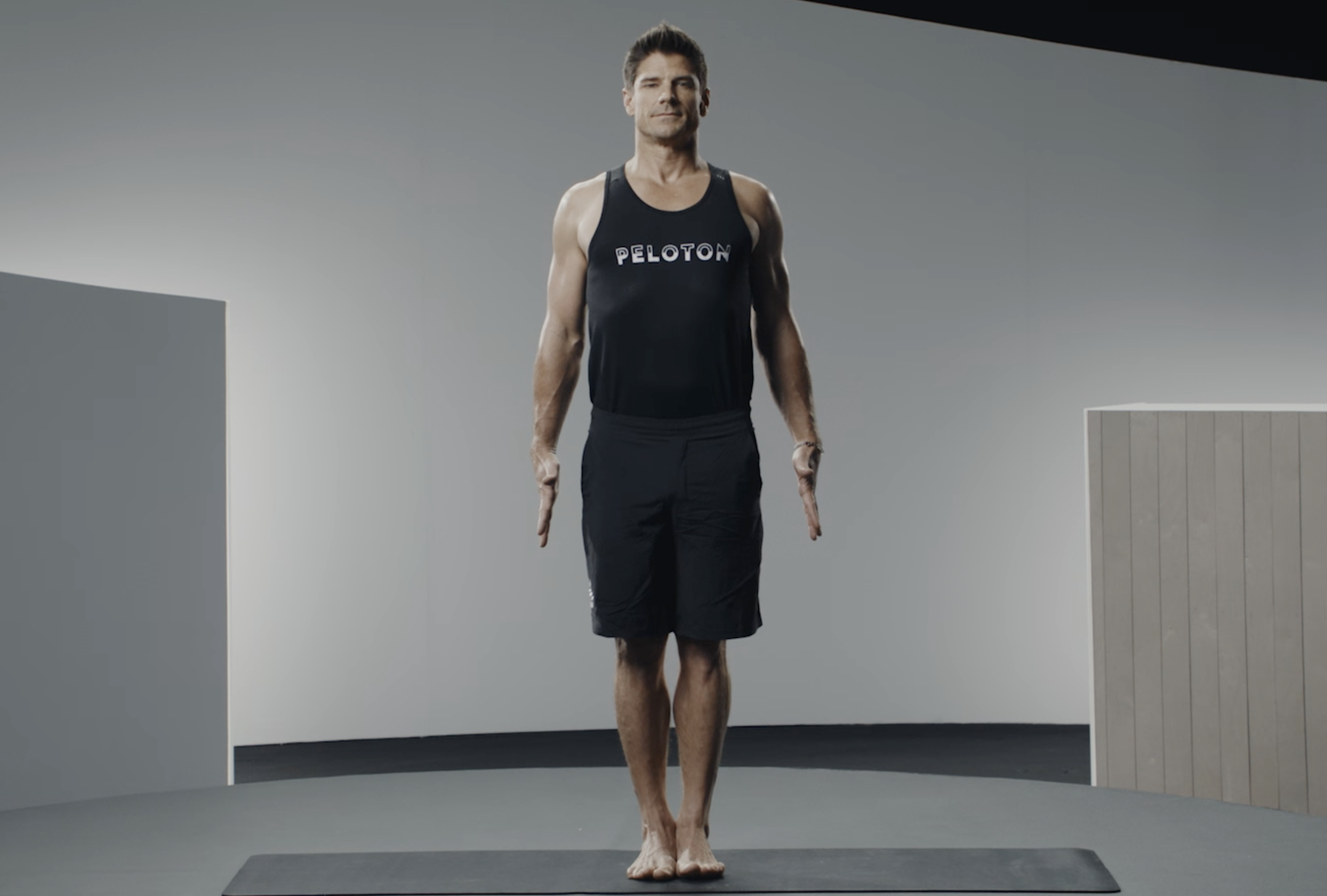
Ivan Rodriguez Alba/Moment via Getty Images
10 Yoga Poses to Practice Whenever You're Feeling Anxious
Turn to these postures in those moments of stress and discomfort.
By Elizabeth Millard•
Can Yoga Help with Anxiety?
Yoga for Anxiety: Key Benefits
How Often Should You Practice Yoga for Anxiety?
Yoga for Anxiety: 10 Poses to Try
Whether you're in the midst of an overwhelming day or have felt stressed for some time, finding ways to reset your nervous system can help alleviate those feelings of anxiety and unease. Those strategies look different for everyone, but they can include working out, talking with a friend, doing yoga, trying mindfulness meditation, and more.
The more you employ strategies that ease your overwhelm, the faster your brain "learns" to downshift when you need it most, according to Leela Magavi, MD, psychiatrist and regional medical director for Mindpath Health in Newport Beach, California.
"Much like training for your body, consistency and repetition can train your mind," she says. "Addressing anxious feelings is a great example. By developing a routine that's focused on self-compassion, you can not only reduce the effect of those feelings, but you may eventually prevent them in the first place."
Can Yoga Help with Anxiety?
The key word in the question of whether yoga can help with anxiety is "help." There are notable differences between having anxious feelings, which are a natural part of everyday life, and having a diagnosed anxiety disorder, Dr. Magavi says.
Yoga can be a powerful complement to ongoing treatment if you have a disorder. However, it's not considered a replacement for medication or other medical interventions that may be needed, she adds.
That said, it can also help reduce anxious feelings in general, according to Peloton instructor Kristin McGee.
"We are uniting our mind and body through movement and our breath, which can have a very calming effect on the nervous system," she says. "Yoga challenges us in a way that focuses us and keeps us present, so we get less anxious about the past or the future."
Yoga for Anxiety: Key Benefits
Any type of physical activity can provide mental and emotional benefits, but yoga tends to be particularly valuable because of its emphasis on deep breathing and the mind-body connection. Here, we break down a few studies and research reviews highlighting these advantages:
Research published in the International Journal of Yoga in 2011 shows that yogic practices not only enhance muscular strength and flexibility but also lower stress levels, alleviate anxiety, reduce chronic pain, and improve sleep quality.
A 2019 systematic review published in Brain Plasticity found positive effects on how the brain works as a result of a yoga practice, including better functioning in the amygdala, the region associated with emotional regulation.
Research published in Frontiers in Human Neuroscience in 2018 notes that even a short-term yoga practice may lead to a decrease in the intensity of certain emotional experiences and improve emotional reactivity.
The link between poor sleep and high anxiety levels has been well established, and yoga can play a role here too; a study of elderly participants published in the Journal of Ayurveda and Integrative Medicine in 2013 suggests the addition of regular yoga exercises in a daily routine can boost sleep quality and improve quality of life overall.
In several of these studies, the effect of yoga on the mental health of participants was observed over a few weeks or months. Although a single yoga session—or even just a few key poses—might alleviate some anxiety, it's helpful to remember that it could take time before you begin to see results like less emotional reactivity and lower stress levels.
How Often Should You Practice Yoga for Anxiety?
Yoga can be done anytime you feel the need for a nervous system reset, Kristin says. It can also be practiced a few times per week as a way to start building more emotional resilience, she adds.
Beyond the physical postures, incorporate breathwork and a meditative mindset into the practice. This may mean consciously taking deeper breaths or repeating a mantra.
"Sometimes people with anxiety have a hard time sitting still with meditation, but yoga can be a moving meditation, which helps so much," Kristin says. "Breathwork is also great to help those with anxiety focus on fully exhaling and not holding the tension inside."

Peloton App
Access thousands of classes with no equipment needed.
Yoga for Anxiety: 10 Poses to Try
You can focus on just one of these poses and "settle in" for several breaths—or even several minutes—or turn this into a sequence of poses to do whenever you're feeling anxious.

This is a foundational pose in many types of yoga, as it offers an opportunity to reset both your body and mind. Kristin adds that it's also an ideal pose for focusing on your breath.
Come to your hands and knees on the mat.
Spread your knees as wide as your mat, keeping the tops of your feet on the floor with your big toes touching.
Rest your belly between your thighs and place your forehead on the floor. You can also stack your hands in front of you and put your forehead on top of them if that's more comfortable.
If you're not stacking your hands, stretch your arms in front of you with your palms facing toward the floor or with your palms facing up, whichever feels better to you.
As you stay in this pose, pay attention to your breath, softening during the exhales.

This pose releases tension in your hips, which can sometimes help alleviate anxious feelings, Kristin says. This variation, done on your back, can help you feel more supported so that you can stay in the pose longer.
Lie on your back with your knees bent and feet on the ground.
Cross your left foot over your right quad, placing your left ankle below your right knee.
Lift your right foot so that your shin is parallel to the ground.
Hold the back of your right leg and gently pull it toward your chest.
When you feel a comfortable stretch, hold there for one to three minutes.
Switch sides and repeat.
3. Humble Warrior Pose (Baddha Virabhadrasana)
Warrior poses provide a feeling of empowerment and strength, Kristin says. In this pose, the forward fold also helps bring a sense of ease.
Start in Warrior 2 Pose (Virabhadrasana 2). Stand facing the long edge of your mat with your feet double hip-width distance apart.
Point the toes of your back foot toward the long side of your mat and the toes of your front foot toward the front of your mat.
Lift your chest, roll your shoulders back, and extend your arms straight out from your shoulders so that they’re parallel to the floor. Keep your palms facing down.
Bend your front knee until your thigh is parallel to the floor at a 90-degree angle (or as close to 90 degrees as you can comfortably get).
Keep your torso upright and turn your head forward so you gaze over your front hand’s fingers. Lower your shoulders down, away from your ears.
Bring your arms behind your back and interlace your fingers.
Gently bend forward toward your front leg and rotate slightly outward so that your shoulder comes to your front knee or inside your front leg.

Because this pose focuses on stretching one side of your body at a time, Kristin says it can help deepen your breath, which may help reduce anxiety.
Start in Warrior 2 Pose, with your right foot in front and your left foot parallel to the back of your mat. Straighten your front leg but keep a slight bend in both knees. Extend your arms out, making sure they’re parallel with the floor.
Reach forward with your right hand so that your left hip rocks back slightly.
Slowly lower your right hand toward your right shin and extend your left arm straight up toward the ceiling. Look up toward your left hand.
Hold for five breaths then switch sides.

5. Pyramid Pose (Parsvottanasana)
Any type of forward fold, like this pose, tends to help you go inward, Kristin says. That can help you focus more fully on your breath, as well as on your body awareness.
Begin by standing with your hips squared. Step one foot back about two to four feet. Your back foot can stay pointing straight ahead or at a 45-degree angle, depending on what feels comfortable to you.
Keep your hips facing forward as you interlace your hands behind your back. Extend your arms out or place them in a reverse prayer position, which means your palms touch behind your back, between your shoulder blades.
Hinge at your hips, and begin to fold forward toward your front thigh.
Focus on keeping your chest open. Take a few breaths before coming back up to standing. Repeat on the other side.

6. Standing Forward Fold (Uttanasana)
This pose offers a mind-body connection. Focus on deepening into the pose with long exhales.
Stand at the front or back of your mat, with your feet about hip-width distance apart.
Bend your knees slightly and hinge forward from the hips until your chest is against your thighs. Let your arms dangle forward, or place them on your shins, whichever is most comfortable for you.
As you inhale, think of lengthening your spine, bringing your head closer to the ground. As you exhale, focus on softening your chest and shoulders so you melt more fully into your thighs.
7. Side Twist
A twist can give you a fresh perspective on how your body moves, Kristin says. This simple can help you turn inward, calming your mind.
Lie down on your back and bend your knees. Place the soles of your feet on the floor and position your arms out in a T shape, with your palms facing up.
Press into your feet to lift your hips slightly off the floor and shift them about an inch to your right. This helps your hips "stack" when you move into the twist, which takes pressure off your lower back. Lower your hips back down.
Cross your right leg over your left.
Let your legs drop gently to the left as far as they'll go before your right shoulder comes off the floor.
Stay here for 30 seconds to a minute, then come back up and recenter your hips while uncrossing your legs.
Switch sides and repeat.

8. Tree Pose (Vrksasana)
Although this is a balance pose, it also makes you feel grounded, which Kristin says is an important part of reducing anxious feelings.
Stand with your feet together and your knees slightly bent. Bring your hands to your hips or your palms together in front of your heart.
Shift your weight into your right foot and lift your left foot as you bend your left knee and open your knee to the left side.
Place the sole of your left foot against your ankle, calf, or upper thigh. Avoid placing your foot against your knee since this can create too much lateral pressure on your knee.
Raise your arms if it feels comfortable as a way to challenge your balance.
Hold for five breaths, then switch sides.

9. Mountain Pose (Tadasana)
This is another grounding pose and offers a good opportunity to deepen your breath, Kristin says. To feel more present in your body, try closing your eyes.
Stand with your feet either shoulder-width distance apart or hip-width distance apart, whichever makes you feel most comfortable. Put a slight bend in the knees.
Shrug your shoulders up by your ears, then imagine your shoulder blades coming together and relaxing downward. This will bring your shoulders into a neutral, relaxed position.
Your arms will hang by your sides. For an added shoulder release, face your palms forward.
Breathe here for 30 seconds to a minute, or longer if you feel like you're relaxing more with each breath.

As a resting pose at the end of a class or a series of poses, this is a chance to relax all parts of your body and just let go, Kristin says. Take deep breaths and feel a sense of release in your body and your mind.
This content is for informational and educational purposes only and does not constitute individualized advice. It is not intended to replace professional medical evaluation, diagnosis, or treatment. Seek the advice of your physician for questions you may have regarding your health or a medical condition. If you are having a medical emergency, call your physician or 911 immediately.
Want to strengthen your yoga practice?
We can help. Enter your email to get articles, instructor tips, and updates from Peloton sent to your inbox.
By providing your email address, you agree to receive marketing communications from Peloton.
For more about how we use your information, see our Privacy Policy.











